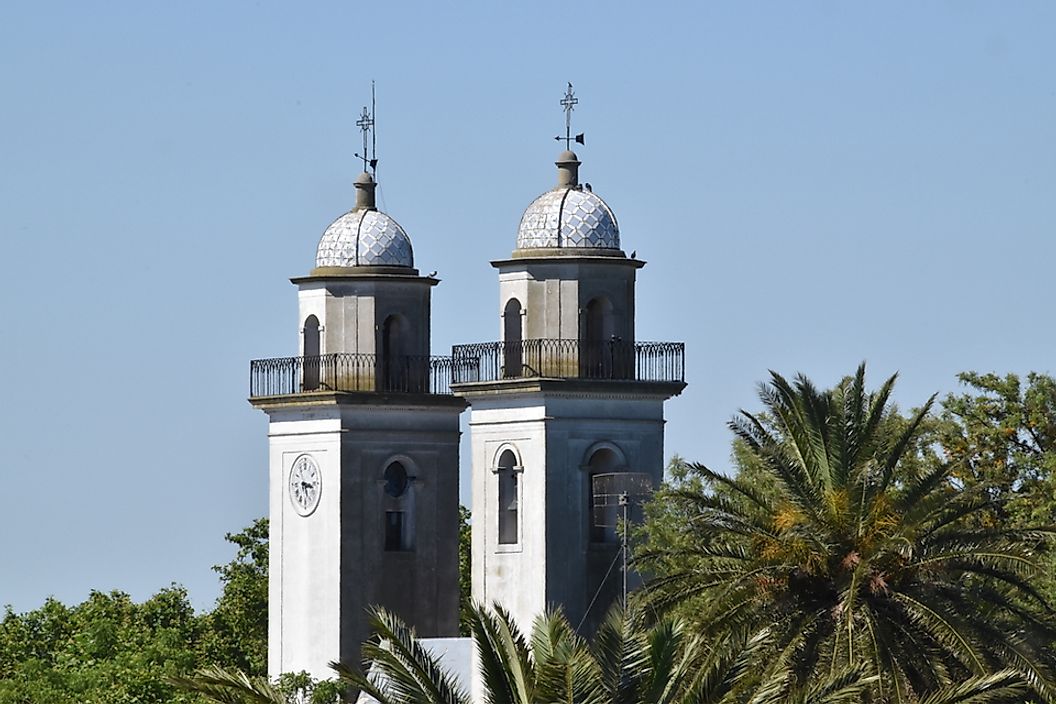Major Religions Practiced in Uruguay

Uruguay is a country in South America with an area of 176,215 square km and a population of 3,444,006. According to the CIA World Factbook, Roman Catholics and non-Catholic Christian denominations account for 47.1% and 11.1% of Uruguay's population, respectively. Additionally, 23.2% are not affiliated with any particular religion but believe in the existence of a supreme being, while Atheists and agnostics account for 17.2% of Uruguay's population. The country also has a small Jewish population. Other religions like Islam, Hinduism, and Buddhism also have small followings in Uruguay.
Christianity in Uruguay
Like other countries in the Americas, Christianity was introduced in Uruguay by European settlers who established colonies in the region. Missionaries were sent to different parts of Uruguay to convert the indigenous population to Christianity. In 1830, Uruguay's constitution established Catholicism as the state religion. Montevideo, Uruguay’s capital, became a diocese in 1878 and an archdiocese in 1897. However, a new constitution in 1917 separated the church and state.
Irreligion in Uruguay
Uruguay is the most secularised nation in South America, and has the highest percentage of agnostics and atheists in the Western Hemisphere. Uruguay ranks sixth on the list of the least religious countries in the world.
Hinduism in Uruguay
There is a small Hindu community in Uruguay comprised of about 300 members, most of whom are from India. Yoga organizations active in Uruguay help to propagate Indian culture and philosophy.
Islam in Uruguay
There are between 900 and 1,000 Muslims in Uruguay, accounting for only about 0.02% of the country’s population. Most of these Muslims live in Chuy, Montevideo, Artigas, and Rivera.
Judaism in Uruguay
Uruguay has the fourth biggest Jewish community on the continent. Most of Uruguay’s Jews arrived in the country during or after World War I and II in order to escape persecution in their native countries.
The Bahá'í Faith in Uruguay
Uruguay has a small Bahá'í community. The first Bahá'í in Uruguay was Martha Root, a prominent traveling teacher, who entered the country in 1919. By 2001, the country had an estimated population of 4,000 Bahá’ís.
Religious Freedom and Tolerance in Uruguay
Compared to other countries in South America, religion plays a less significant role in the lives of many citizens of Uruguay. This is at least partly explained by the fierce resistance of the country’s indigenous inhabitants to the religious conversions imposed by colonists in the pre-independence era.











